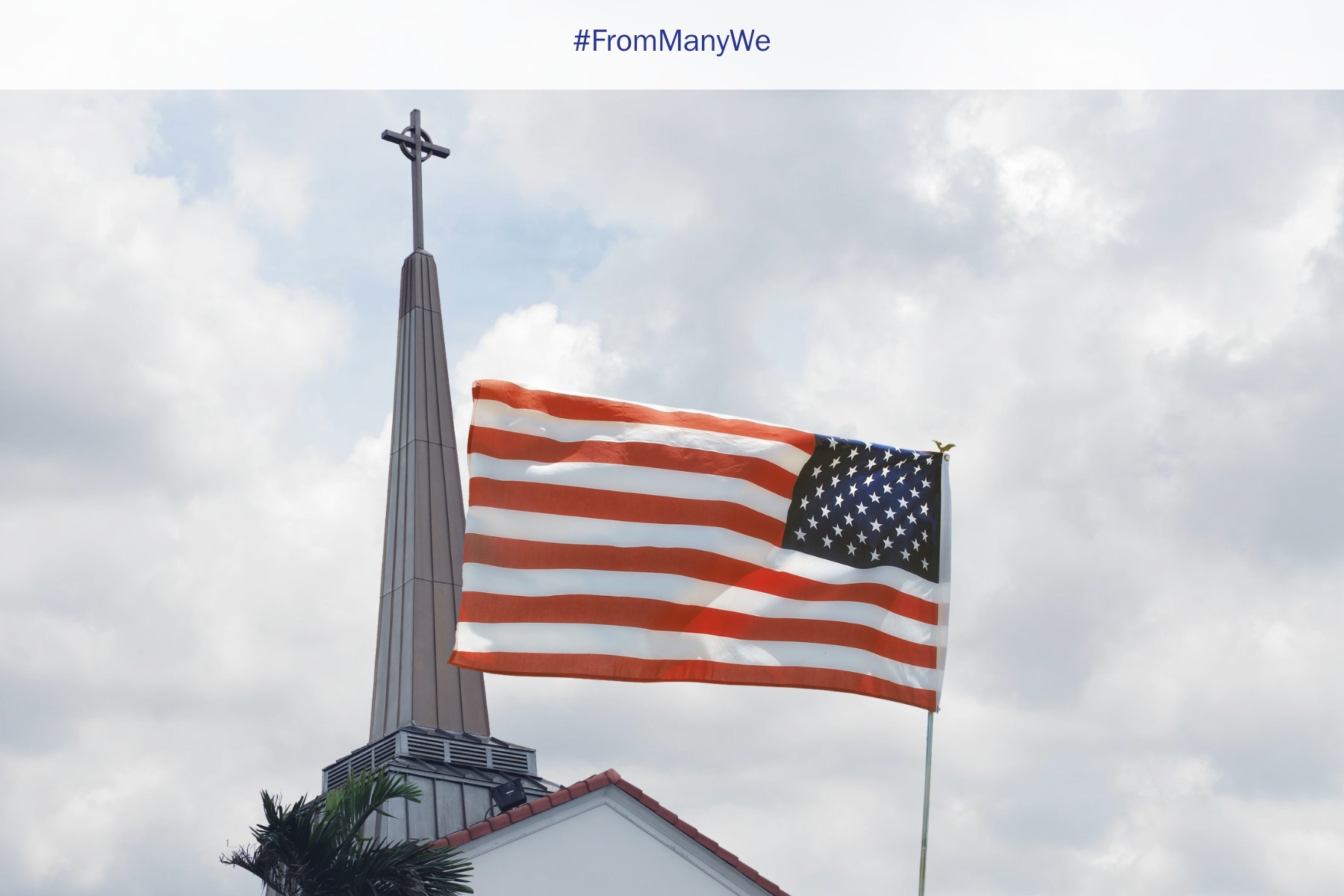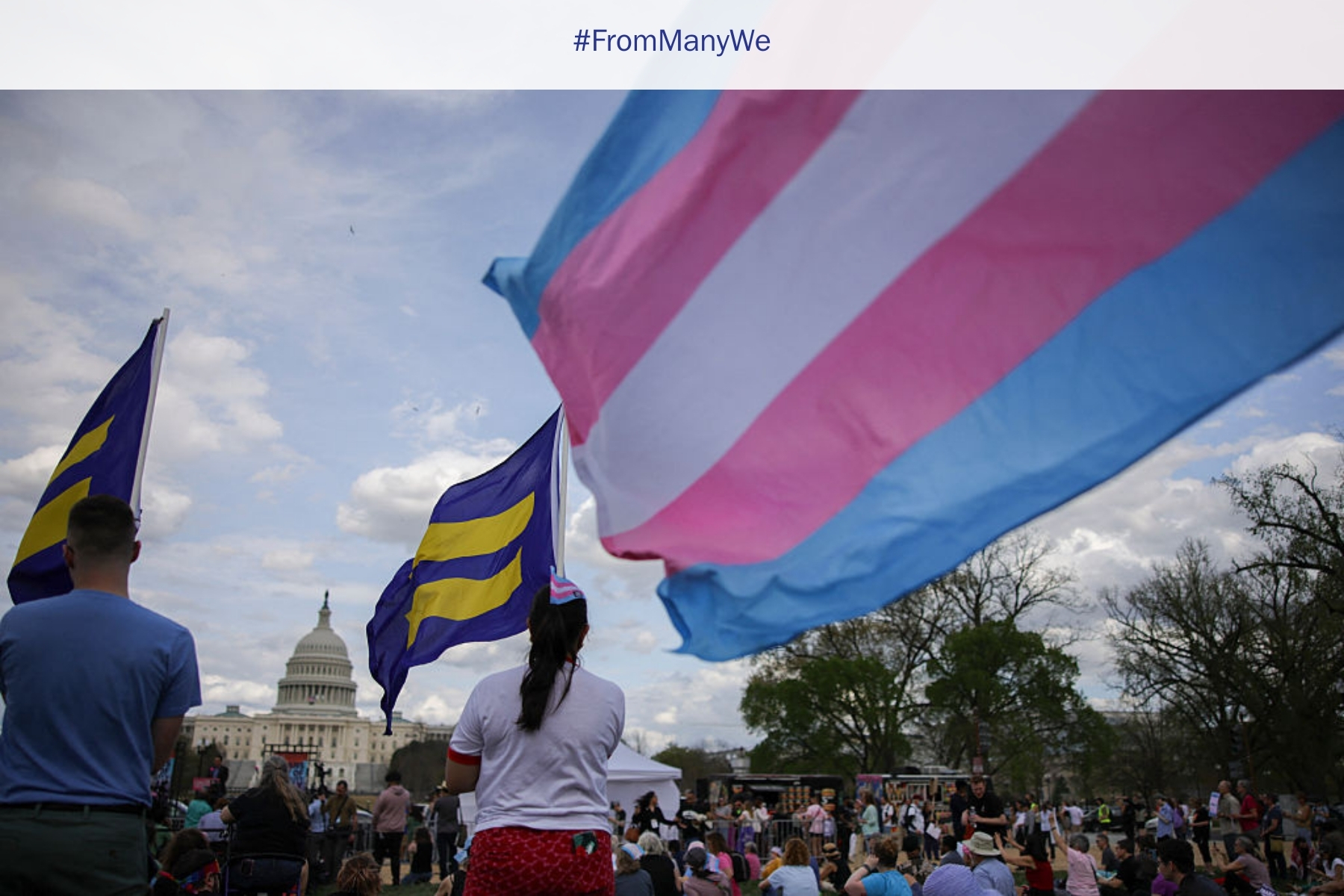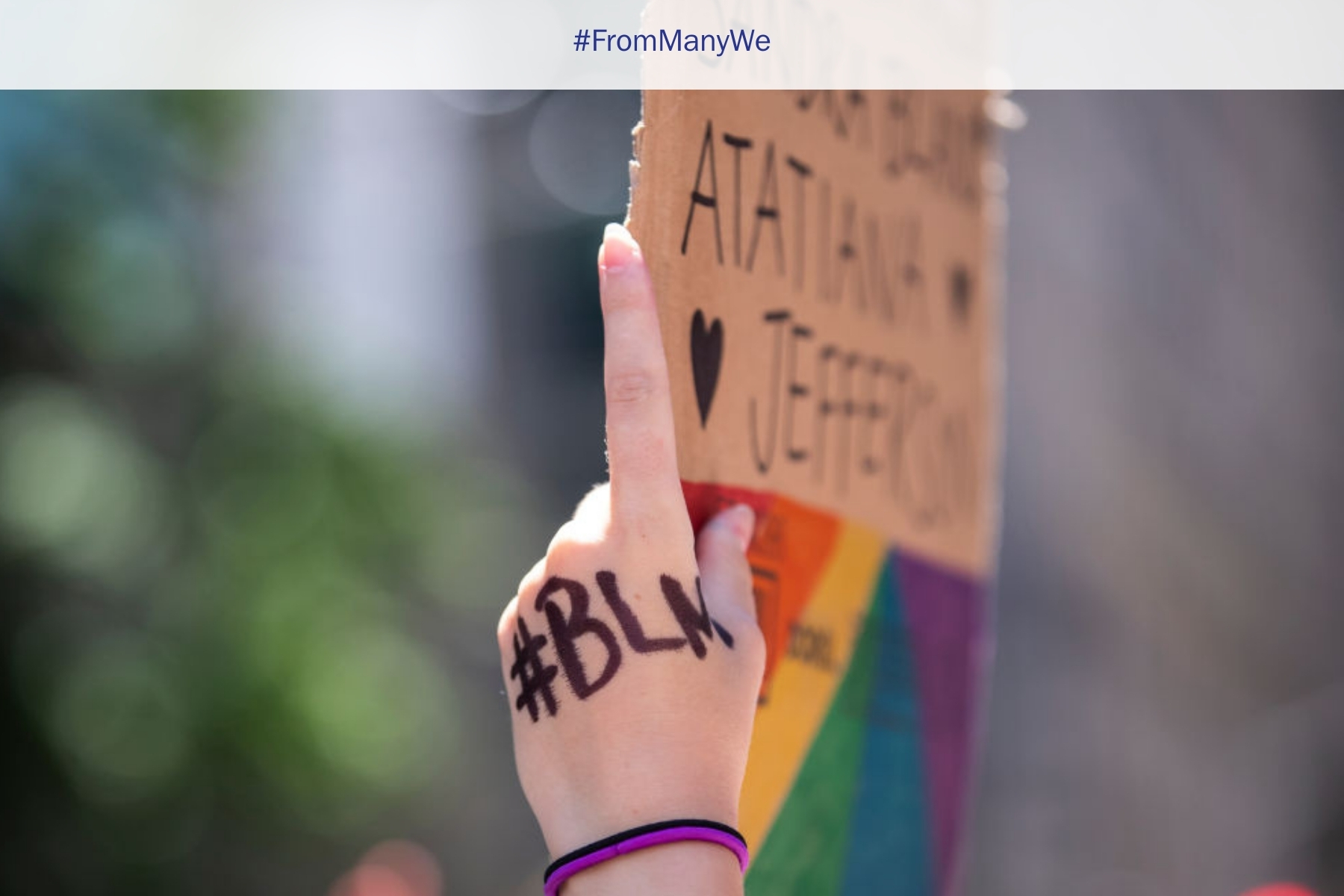Five Elements of Christian Nationalism

The explicit aim of Project 2025, which has guided much of the early work of the Trump administration, is to infuse biblical principles across the federal government. Calls to protect Christianity, make America more Christian, and align this country with the Bible are all common phrases associated with Christian nationalism.
However, the last decade of social scientific research on Christian nationalism has shown how it jeopardizes democracy and seeks to dramatically reshape American civic life, much like Project 2025.
The evidence exposing the threats of Christian nationalism to democracy continues to accumulate, and various politicians and religious leaders have responded by attempting to redefine the term. For instance, they will claim Christian nationalism is merely “loving Jesus” and “being patriotic.” This is not what scholars mean when we talk about Christian nationalism.
The empirically supported definition of Christian nationalism used by experts across various fields of study is:
Christian nationalism is an ideology that desires a close fusion of a particular expression of Christianity with American civic life. It demands our government, at all levels, vigorously defend this ideology as central to our national identity, public policy, and social belonging.
The particular expression of Christianity referenced by Christian nationalism means a lot more than just “loving Jesus” and being patriotic. While the goal of infusing “biblical principles” into American civic life may seem innocuous to many Christians, it raises the questions: Which biblical principles? Why those biblical principles? It also excludes some Americans of other religious traditions or those who are not religious at all.
Claims of “loving Jesus” and “instilling biblical principles” are focused on favoring a specific expression of Christianity to elevate, legitimate, and ultimately achieve a very particular vision for the United States. This vision serves to defend the privileges of one group while chipping away at the fundamental tenets of an inclusive democracy where Americans of all or no religious faith can participate.
The scientific evidence emanating from over a decade of studies on Christian nationalism is helpful as it reveals the implicit cultural commitments hidden in these phrases. It shows specifically what is included in the “Christianity” of Christian nationalism, what I like to refer to as the “cultural baggage” of Christian nationalism.
The Five Key Elements that Define the “Christianity” of Christian Nationalism
A Desire for a Traditional Social Hierarchy. Christian nationalism prefers a nation with certain people at the top, some in the middle, and then the rest at the bottom. These social hierarchies revolve around gender, sexuality, and family structure. The idea is that the United States will be strongest if men lead while women support, marriage is reserved for men and women, only two genders are recognized, children are raised in homes with their biological mother and father, and families commit to having large families.
Those who represent this ideal will enjoy easy access to the benefits of citizenship. Those who do not will be denied access. Nations that order their society accordingly will flourish. Those that do not will fall out of God’s blessing.
This cultural commitment is signaled in Project 2025. The third goal for the Department of Health and Human Services is labeled “Promoting Stable and Flourishing Married Families.” Page 451 of the Mandate for Leadership states, “Families comprised of a married mother, father, and their children are the foundation of a well-ordered nation and healthy society.” It calls for the next Secretary of Health and Human Services to support policies “encouraging marriage, work, motherhood, fatherhood, and nuclear families” (284) while stating LGBTQ+ equity, single-motherhood, and fatherlessness are the root of societal disarray.
A Commitment to Strong Ethno-Racial Boundaries around National Identity and Social Belonging. Christian nationalism poses a specific threat to democracy as it envisions a very specific preferred citizen who is both White and a natural-born citizen. This relies on a historical narrative of the United States that believes this was the group of people who created this country, and it is this group who should enjoy the easiest access to civil rights, social benefits, and political power. This narrative also reinforces the idea that racial and ethnic diversity, including the arrival of immigrants and refugees, only weakens the nation.
A key objective throughout Project 2025 is to strip away all diversity, inclusion, and equity efforts as these are viewed as weakening the federal government apparatus and discriminating against White Americans. Various executive orders and actions from the Trump administration are explicitly aimed at fulfilling these goals.
Idealizing Free-Market Capitalism. In response to fears surrounding “creeping socialism” around the New Deal, and later fears concerning communism, Christian leaders and wealthy capitalists promoted free-market capitalism, which emphasizes privatization, deregulation, and reduced public spending, as the Christian God’s preferred economic system.
Throughout the 1930s and 1940s Christian leaders maintained that the fundamental principle of Christianity was the salvation of the individual. As historian Kevin Kruse writes, “If any political and economic system fit with the religious teachings of Christ, it would have to be rooted in a similarly individualistic ethos. Nothing better exemplified such values, they insisted, than the capitalist system of free enterprise.” They maintained these beliefs were vital to maintaining a strong nation. Real patriots were economically productive and believed the myth of meritocracy: through hard work they could achieve their American dream. Making each American personally responsible for their own economic situation, however, obscured the policies that protected the fortunes of the already-wealthy. Opportunities were limited for the working and middle classes, and especially for the racial and ethnic groups that experienced legalized discrimination.
Today, Americans who embrace Christian nationalism still prefer this view of free-market capitalism. They exhibit a generalized fear toward other economic systems and oppose perceived undesirable governmental interference, including racially coded government spending like funding welfare. Rescinding various regulations and abolishing consumer protection agencies, which primarily benefit working- and middle-class Americans, are two examples of this cultural commitment at work within Project 2025.
A Preference for Authoritarian Social Control. Christian nationalism views the world as constantly falling into chaos where the God-ordained hierarchies, boundary-lines, and social systems mentioned above are under constant threat. Any nation that fails to abide by these ideals risks losing divine blessing. For this reason, strong rules and a strong ruler are necessary to bring order out of chaos. And because the stakes of a rightly ordered society are so high, nothing—not even democracy—can stand in the way.
For this reason, Americans who embrace Christian nationalism are more likely to demand obedience to authority. When asked in a survey, respondents agreed that “because things have gotten so far off track in this country, we need a leader who is willing to break some rules if that’s what it takes to set things right.” These Americans are more likely to endorse violence in order to “save our country,” limit access to the democratic process, and support leaders using any means necessary to achieve law and order. It is this element of Christian nationalism at work when we see the Department of Homeland Security citing Bible verses while advocating for militaristic deportation measures.
An Embrace of Populism, Perceived Victimhood, and Conspiratorial Thinking. The populist impulse is the idea that this country was made for the common person and not for “elites,” who are constantly trying to steal away their birthright. This encourages a sense of victimization and persecution, which produces an affection for antiestablishment politics. These feelings of victimization and persecution also result in more conspiratorial thinking. Americans embracing Christian nationalism are more likely to endorse the Big Lie, question scientific findings, and believe the government is hiding secrets about various conspiracy theories.
These five pieces of cultural baggage should clearly show that the “Christianity” of Christian nationalism is not just about “loving Jesus.” Rather, Christian nationalism envisions a very particular nation: one that is ordered in such a way that only a certain group remains at the top and in charge while others have limited access to the levers of democracy and the benefits of citizenship.
These cultural commitments of Christian nationalism have implications for all American civic life, including the possibility of a healthy and inclusive democracy. Christian nationalism serves to steer this nation toward one specific destiny that attends to the interests of the few at the expense of all.
If the United States is going to be a nation that supports the full and equal inclusion of all voices and appreciates diversity of all kinds—two fundamental tenets of a healthy democracy—its citizens and leaders will need to consistently identify and reckon with the five cultural elements of Christian nationalism.
Andrew L. Whitehead is professor of sociology at Indiana University Indianapolis, codirector of the Association of Religion Data Archives, and a Charles F. Kettering Foundation Research Fellow. Follow him on Bluesky and Substack.
From Many, We is a Charles F. Kettering Foundation blog series that highlights the insights of thought leaders dedicated to the idea of inclusive democracy. Queries may be directed to fmw@kettering.org.
The views and opinions expressed by contributors to our digital communications are made independent of their affiliation with the Charles F. Kettering Foundation and without the foundation’s warranty of accuracy, authenticity, or completeness. Such statements do not reflect the views and opinions of the foundation which hereby disclaims liability to any party for direct, indirect, implied, punitive, special, incidental, or other consequential damages that may arise in connection with statements made by a contributor during their association with the foundation or independently.








